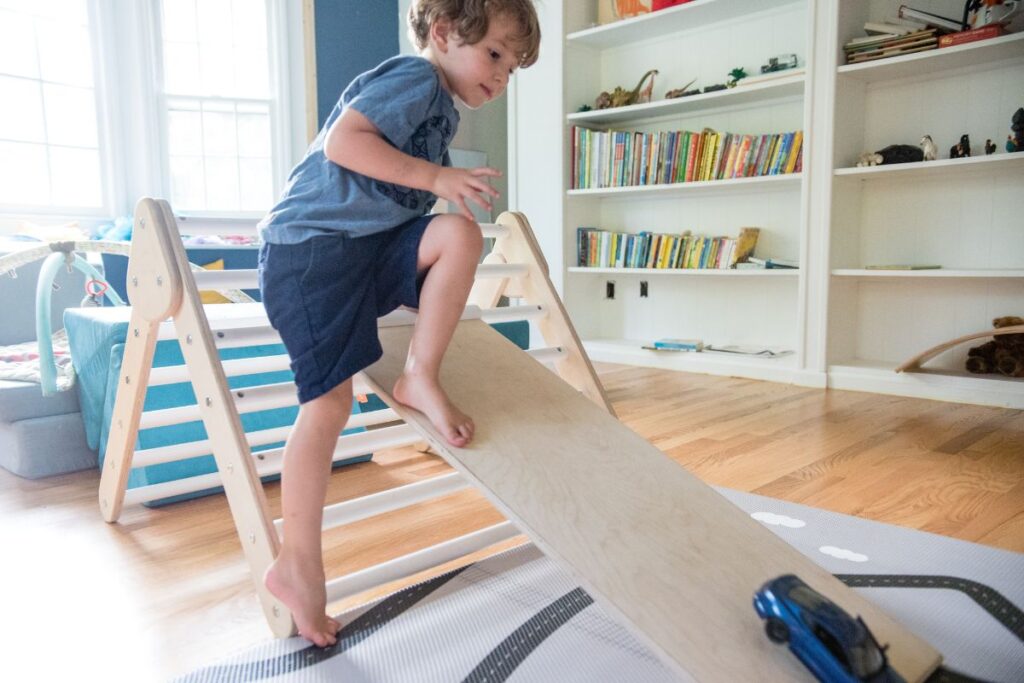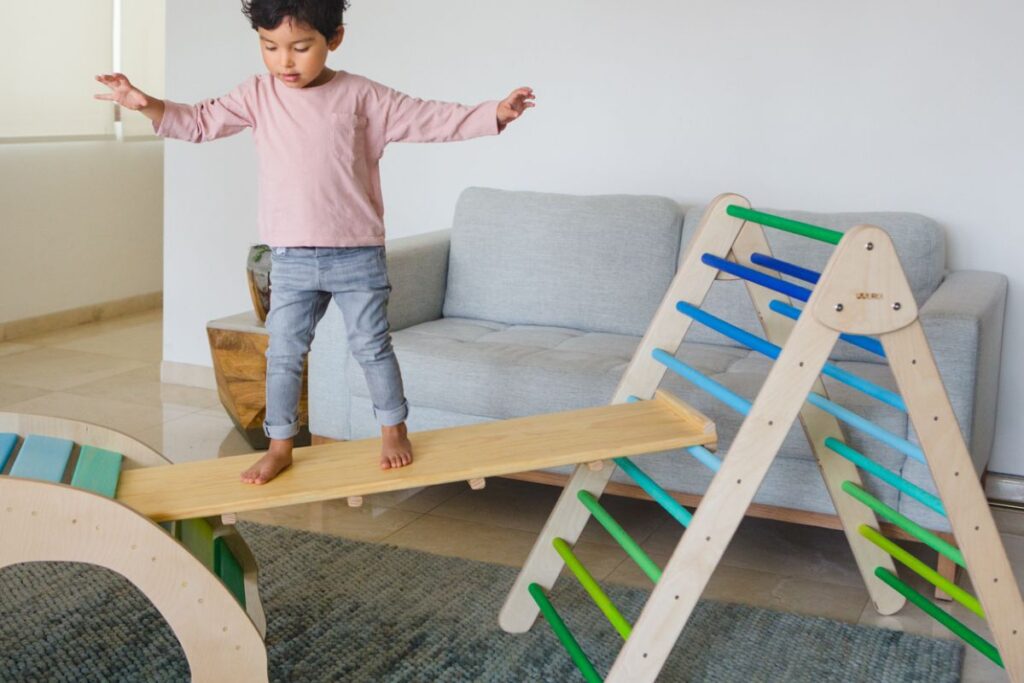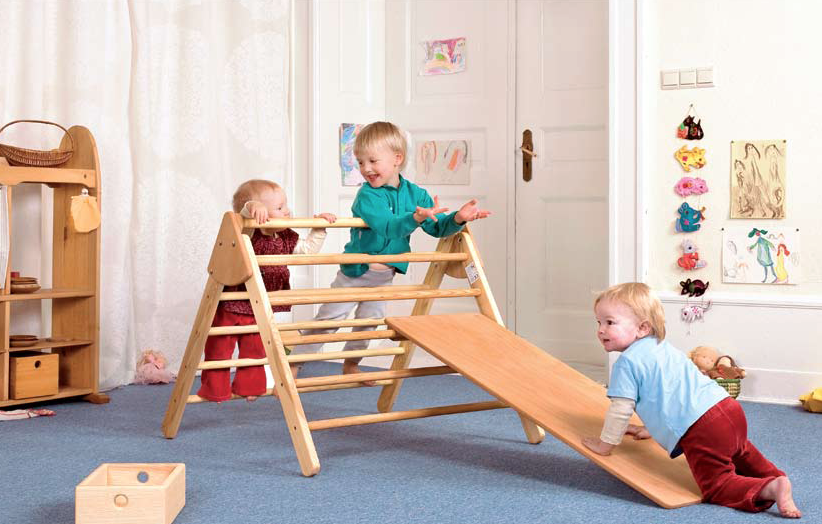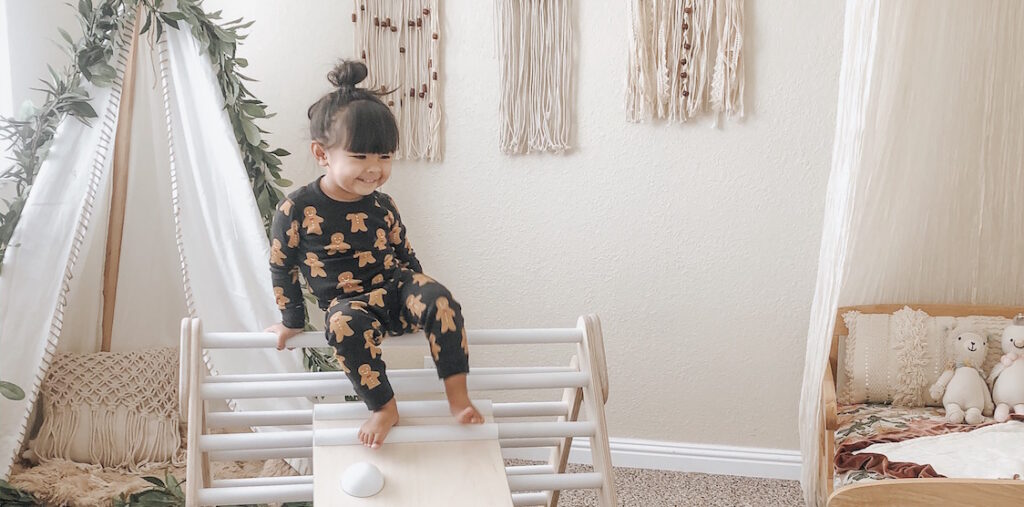Dr Emmi Pikler lived and found her life’s purpose, working with infants in her homeland of Hungary. Pikler, a paediatrician, took over the running of a Home for Children (known as Loczy) in Budapest in 1946. One whom she mentored was Magda Gerber who took Pikler’s philosophy to the USA and introduced it to her new homeland.
Emmi Pikler died in 1984 and Magda Gerber in 2007. Their work however lives on in so many ways and places.
Pikler set an example that the world is just beginning to wake up to. She knew that in order for babies to develop perfectly in the way that nature had intended, certain things must be heeded.
These included:
- The long term impact of free movement on a baby’s spirit, intelligence and physical being.
- Respect being shown to babies at all times – and clarifying what that entailed.
- The importance of a way a baby is touched and supported in the important birth to two years period.
- That no babies needs ‘help’ to reach their milestones in life. We can however support them with patience. Pikler said “As a matter of principle, we refrain from teaching skills and activities which, under suitable conditions, will evolve through the child’s own initiative and independent activity.”

Full Attention – especially when involved in the Caring activity times:
Many Mums these days believe that multi-tasking is a great skill and a necessary one. Pikler realised that, in fact, it does not show respect to our babies when we multi-task, any more than when adults multi-task when we require their attention. 100% full attention focuses us in such a way that babies receive and interpret this as the embodiment of Love. It also brings more stillness to lives which have become overwhelmed with speed and ‘productivity’. It is much wiser for us to divide our time than our attention!
Slow Down:
In today’s ever increasing speed of life – it may benefit us and our babies if we slowed down a little more often! As we whisk ourselves and our babies through tasks, and jump from activity to activity a sense of turmoil can be created. Over stimulated babies are often fretful, and their mother’s/caregivers stressed. Creating calm around babies is relaxing, as well as peaceful – and allows them to be in an environment where their sacred ‘unfolding’ can take place respectfully.

Build Trust, and your Relationship, during the Caring activity times:
Pikler believed that parents and caregivers need to take the time to make nappy changing, feeding, bathing and dressing, an unhurried and pleasant quality time – with the baby being an active partner. With nature’s built-in ‘choreography for growth’, if given security and freedom a baby will then spend their time learning just what they need to be learning at any given stage.
Magda Gerber – a student of Emmi Pikler’s ,and the original ‘transporter of the philosophy to the U.S.A. stated, “When you approach your baby with an attitude of respect, you let him know what you intend to do and give him a chance to respond. You assume he is competent and involve him in his care and let him, as much as possible, solve his own problems. You give him plenty of physical freedom and you don’t push development.”
‘With’ – and not ‘To’:
Building a Cooperative relationship with a baby requires that you work together on things. We tend to radically underestimate a baby’s willingness and capability in this area. Pikler saw babies as active participants rather than passive recipients in their care.
All of this requires us to talk to our babies a lot more about what we would like to work with them on – and being patient, giving them time to respond.
For Example: Chloe was nannying 12 months old Angus. His Mum said to Chloe – “He has a runny nose today Chloe – and he hates having it wiped – just do your best”. Chloe noticed that Angus’s Mum would (gently) hold the back of his head with her left hand whilst she wiped with her right hand. Understandably – Angus struggled to escape this ‘lockdown’. When Chloe noticed that his nose was running, she held out a tissue in her open hand. She showed it to Angus and quietly said “Angus . . . . Your nose is runny . . . . we’ll have to wipe it together”. And she waited. Angus looked at the tissue – then looked at Chloe. She still waited. He looked at the tissues again . . . . and then placed his little face down into them so that they could wipe his nose together. To be in the presence of a baby who is given the chance to work cooperatively is a beautiful thing!

Allow babies uninterrupted time for play:
Magda Gerber firmly believes that parents don’t need to entertain their babies because given a nurturing environment and freedom to explore, babies are quite capable of entertaining themselves.
Not only that, but what if our ‘help and support’ that we give (with love and good intentions), was actuallyinterference with a sacred process? The unfolding of who they truly are meant to be.
As they play uninterrupted by our interaction, they are experiencing independence, and mastery of their world. It is here that the early beginnings of self esteem and confidence building is taking place.
Magda Gerber: “Parents believe they treat their babies with respect. But if you watch well-meaning, loving adults, you’ll see that they will often interrupt baby’s play without a thought, and treat them in other ways that could hardly be called respectful.”
Babies send us cues all the time. Tune in respectfully.
When a baby turns her head away when you offer her another mouthful of veggies – she is saying quite clearly, “I’ve had enough”. Why then do perfectly sensible grown-ups offer another spoonful and say “Just one more for Mummy” or “Open the tunnel for the train – Here it comes!!!”
The message we are sending to our baby is “I know you have a message that you are communicating to me – but I’m ignoring it”. Since children eventually boomerang everything back to parents that they have received from them – you can imagine where this might lead a baby in four or fourteen years time!


